Overview
Character and Citizenship Education (CCE)
CCE Vision: Kranjians as community youth leaders of character
Through its Character Education programme, Kranji Secondary School aspires to develop Kranjians into leaders of character, grounded in core values, and demonstrated through their attitude, behaviour and competencies.
The school’s core values (Respect, Responsibility, Resilience, Compassion, Integrity, Passion for learning) are central to the framework for 21st century competencies and student outcomes, and fundamental to develop Kranjians into leaders with good character and useful citizens of Singapore.
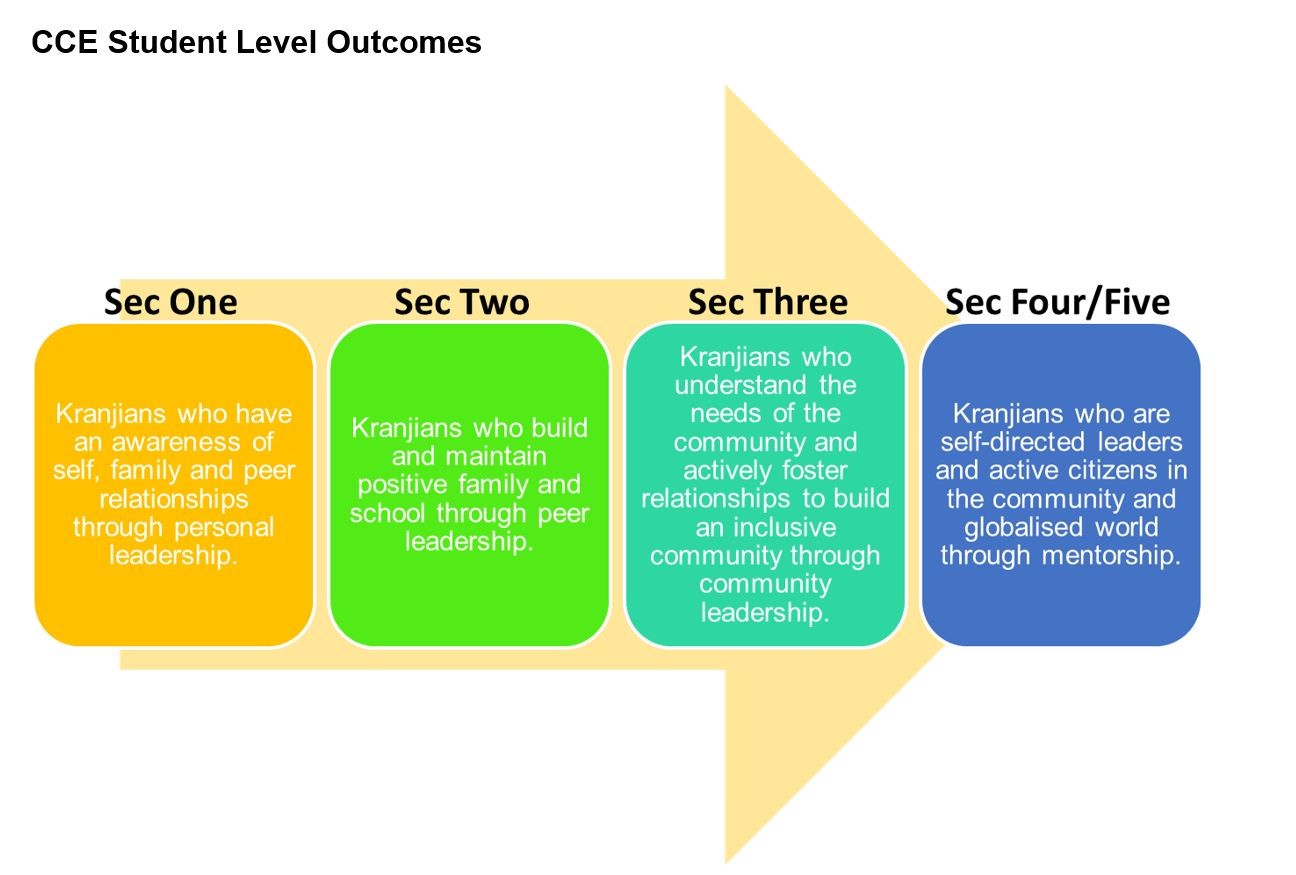
CCE Approaches
In order to achieve these outcomes, the school believes in the following principles and approaches:
- Every Teacher a CCE teacher
- Values are both taught and caught
- A Student-Centred Values Driven education
- Students’ life experiences as possible contexts
- Expanding domain from self to world
The school also adopts the Kolb’s experiential learning style theory in the teaching of CCE. As values and attitudes are abstract concepts, students learn, internalise and demonstrate values better when they are able to (1) experience the value as a concrete experience, (2) reflect on this experience, (3) form their own analysis or conclusions, which are then (4) applied in future situations.
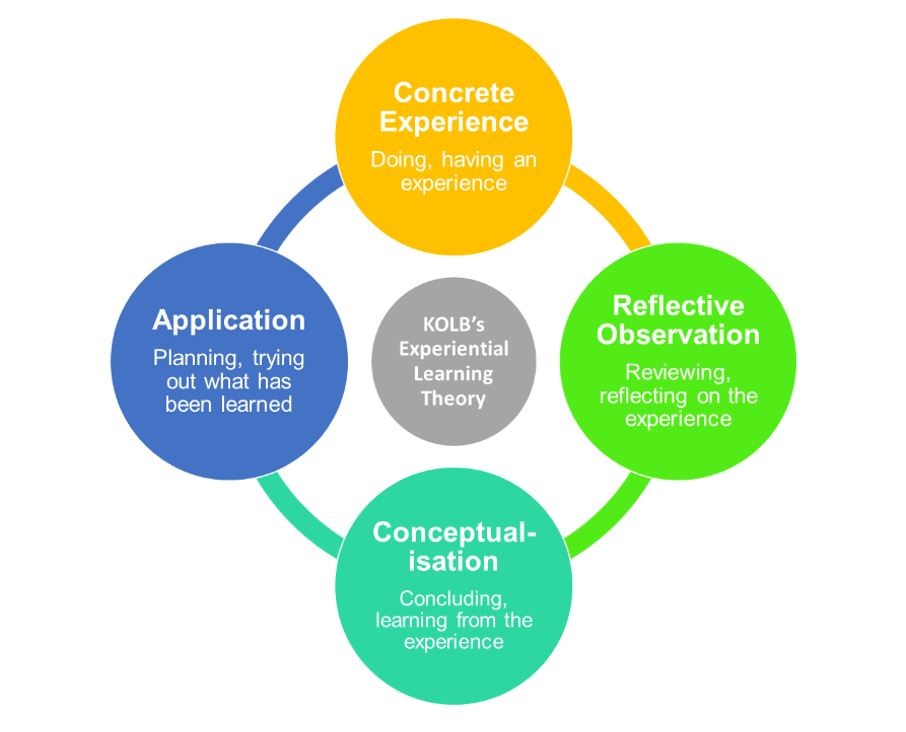
As students go through cycles of experiences, observation, reflection and application, they are given opportunities that enable them to reflect on values, concepts and ideas, and to internalise the values through the application of skills and knowledge in real-world situations. By deriving meaning from doing, students are more likely to take ownership of their learning and transfer their learning into new situations when they have experienced it. Students reflect, evaluate and make decisions based on their value system.
Key Programmes
Apart school-based CCE lessons which include school-developed lesson packages and CCE Guidance Modules, the school also offers various key programmes to different levels.
* National Education
“It is an exercise to develop instincts that become part of the psyche of every child.
It must engender a shared sense of nationhood, an understanding of how our past is relevant to our present and future. It must appeal to both heart and mind.”
– Senior Minister Goh Chok Tong, Teacher’s Day Rally, 8 Sept 1996.
National Education in Kranji Secondary School fosters in students a sense of identity, pride and self-respect as Singaporeans. It is about knowing our past, and being mindful of the opportunities and challenges of the future, both within and outside of Singapore. By providing meaningful learning experiences, the school endeavours to inculcate a sense of rootedness and belonging to the school and Singapore.
Through discussions of contemporary issues, developmental lessons, citizenship experiences and celebration of four core annual events, students are guided in exploring and examining their Singapore identity. These programmes also help students to realise that all Singaporeans have an important role to play for the country to thrive.
National Education Annual Events:
- Total Defence Day
- International Friendship Day
- Racial Harmony Day
- National Day
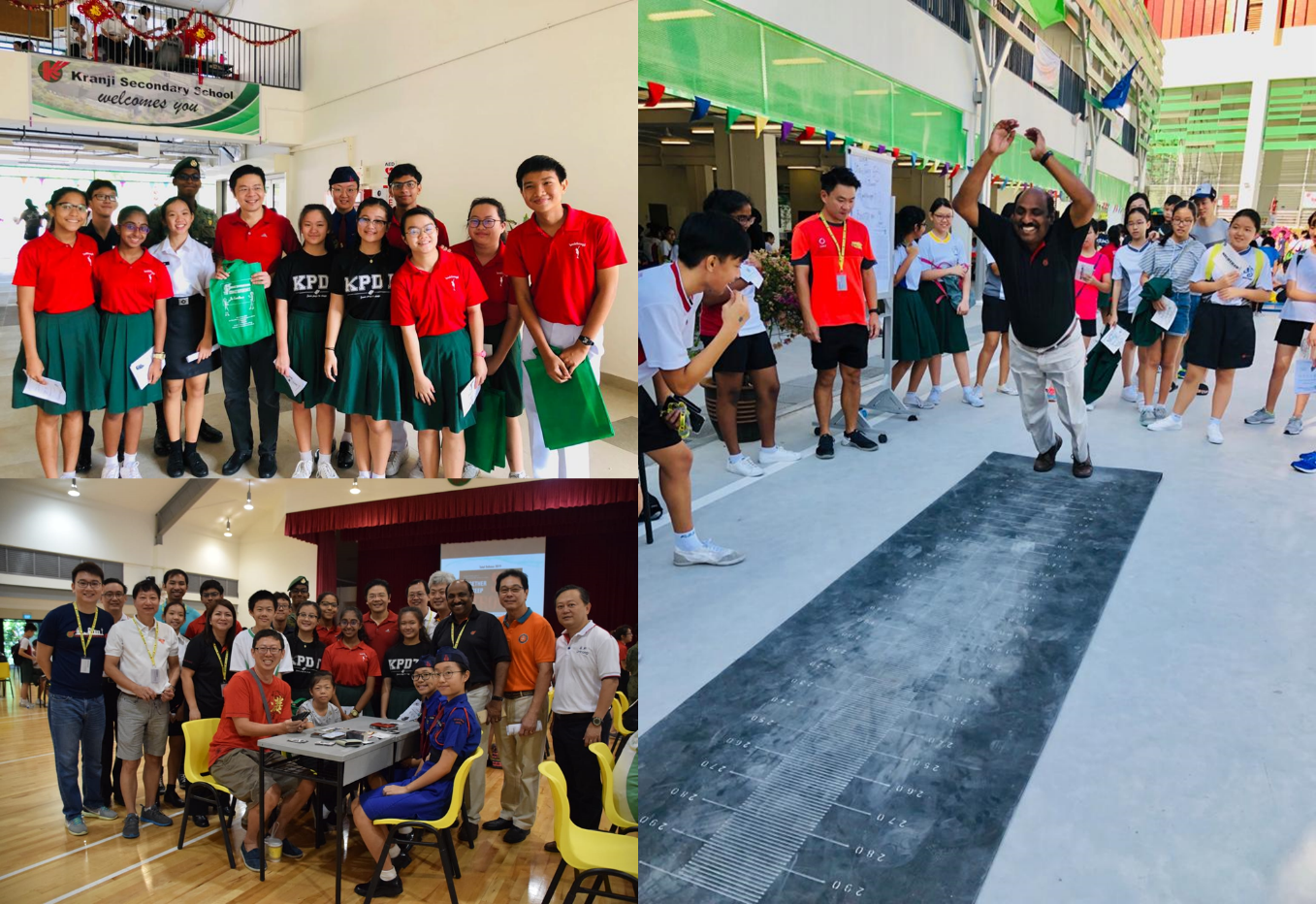 The school commemorates Total Defence Day through a Total Defence Carnival with learning booths designed and run by students.
The school commemorates Total Defence Day through a Total Defence Carnival with learning booths designed and run by students.
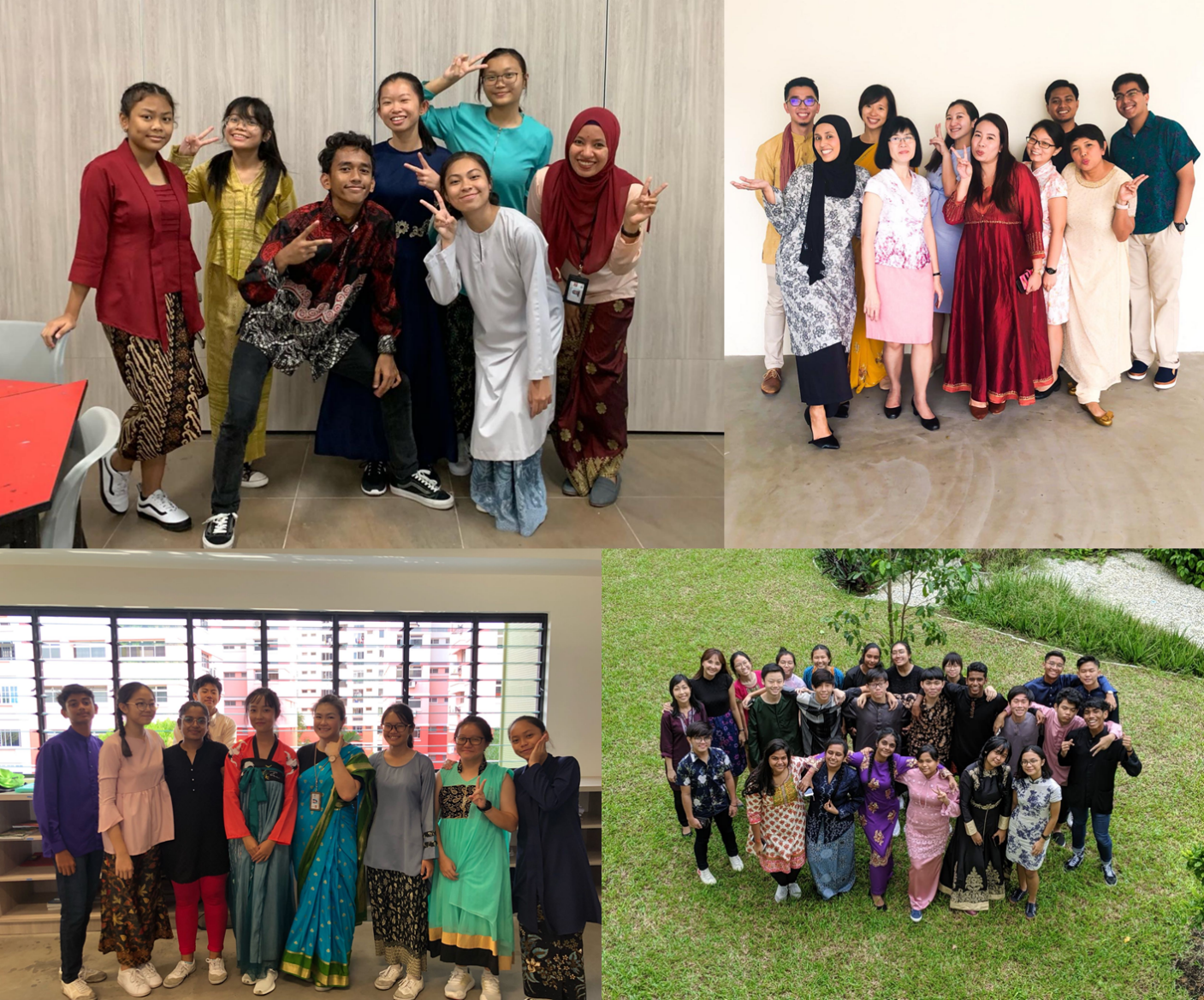 Staff and students commemorate Racial Harmony Day through assembly programmes with a multi-cultural focus and contemporary discussions about race and religion.
Staff and students commemorate Racial Harmony Day through assembly programmes with a multi-cultural focus and contemporary discussions about race and religion.
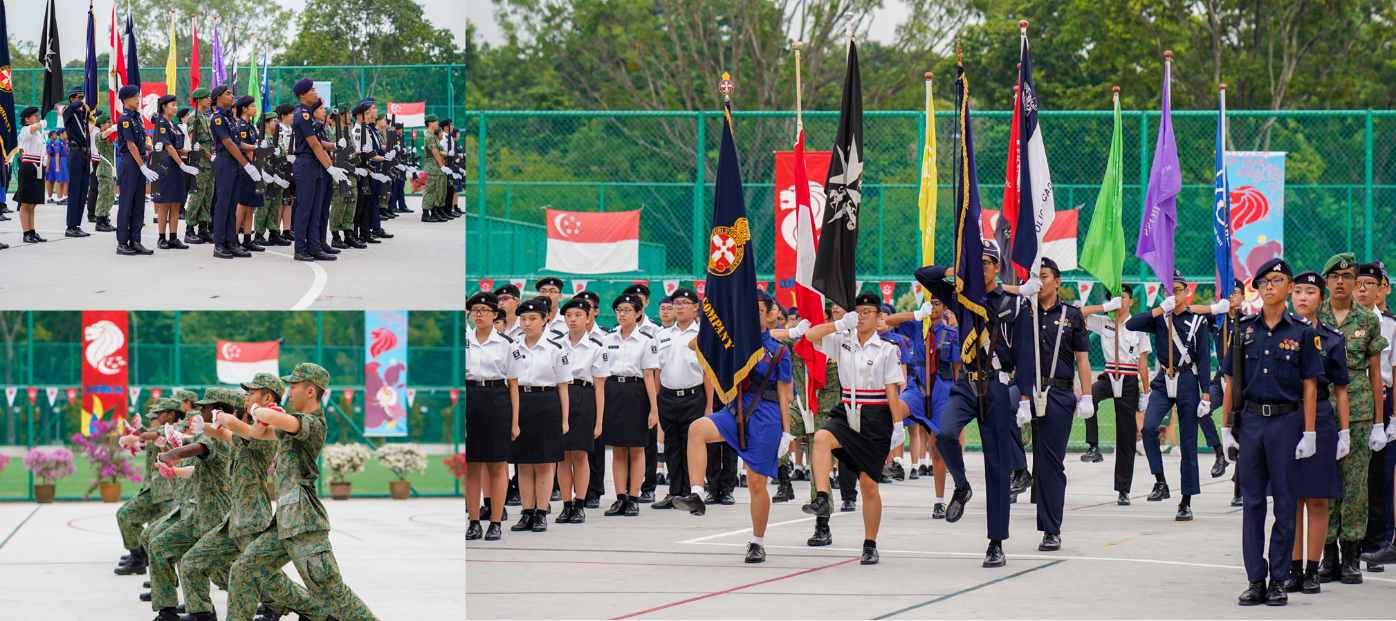
We commemorate National Day through an Observance Ceremony as well as House booths which depict a National Education Key Message.
* Educational and Career Month
In order for graduating students to be able to make responsible decisions in achieving their goals and aspirations in life, the school organises Educational and Career Month. Through this, graduating students gain insights from professionals from different industries and learn more about the tertiary education courses of their choice.
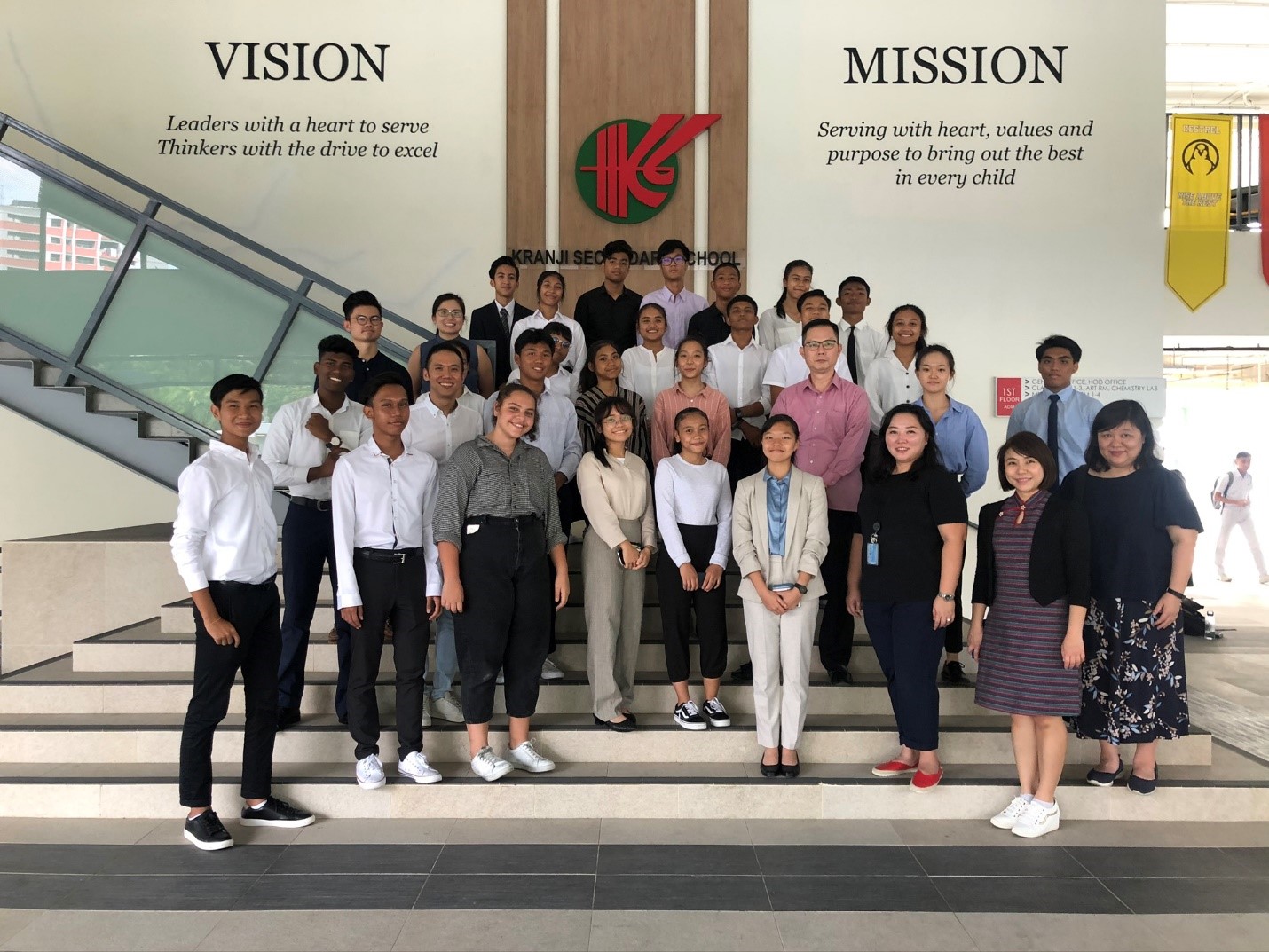 Students learn how to project a professional image and interview skills through workshops and lessons organised by the school.
Students learn how to project a professional image and interview skills through workshops and lessons organised by the school.
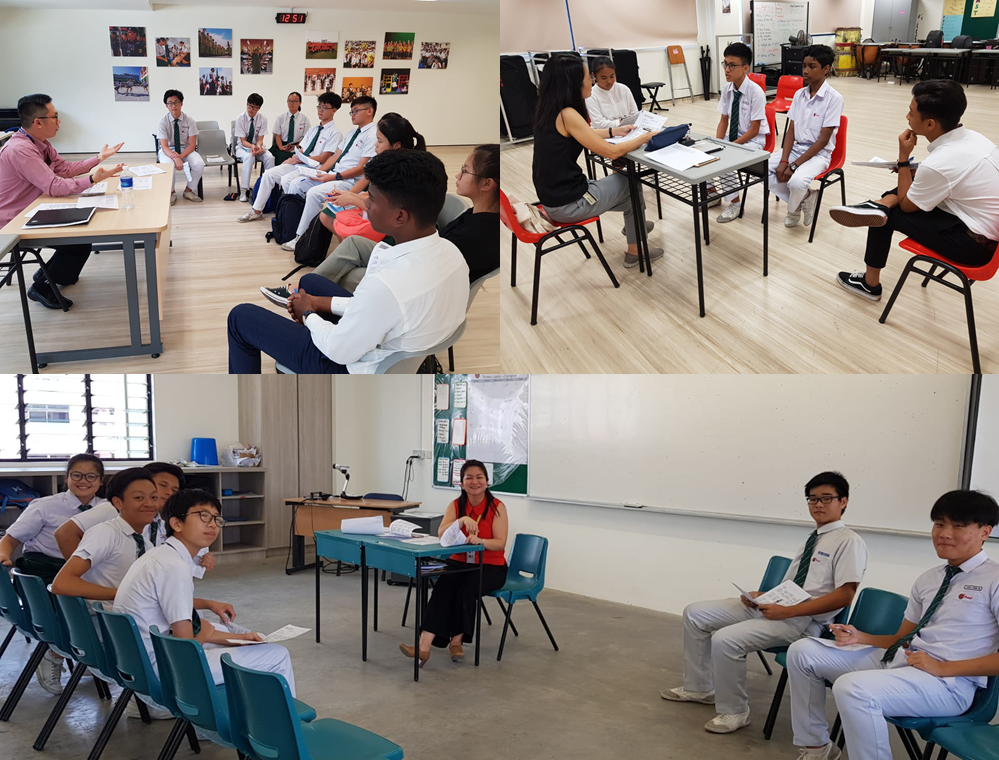 Teachers and PSG members conducted mock interviews with students to prepare them for interviews.
Teachers and PSG members conducted mock interviews with students to prepare them for interviews.
* Work Shadowing
Through a partnership with the Ministry of Health, the school provides selected Secondary Three students with opportunities to participate in a Work Shadowing Programme. These students are given the opportunity to familiarise themselves with a variety of actual work situations through attachment to Allied Health Professionals. Through shadowing a work mentor, students learnt about the world of work through direct participation and observation, assisting in making informed decisions in their transition from school to work.
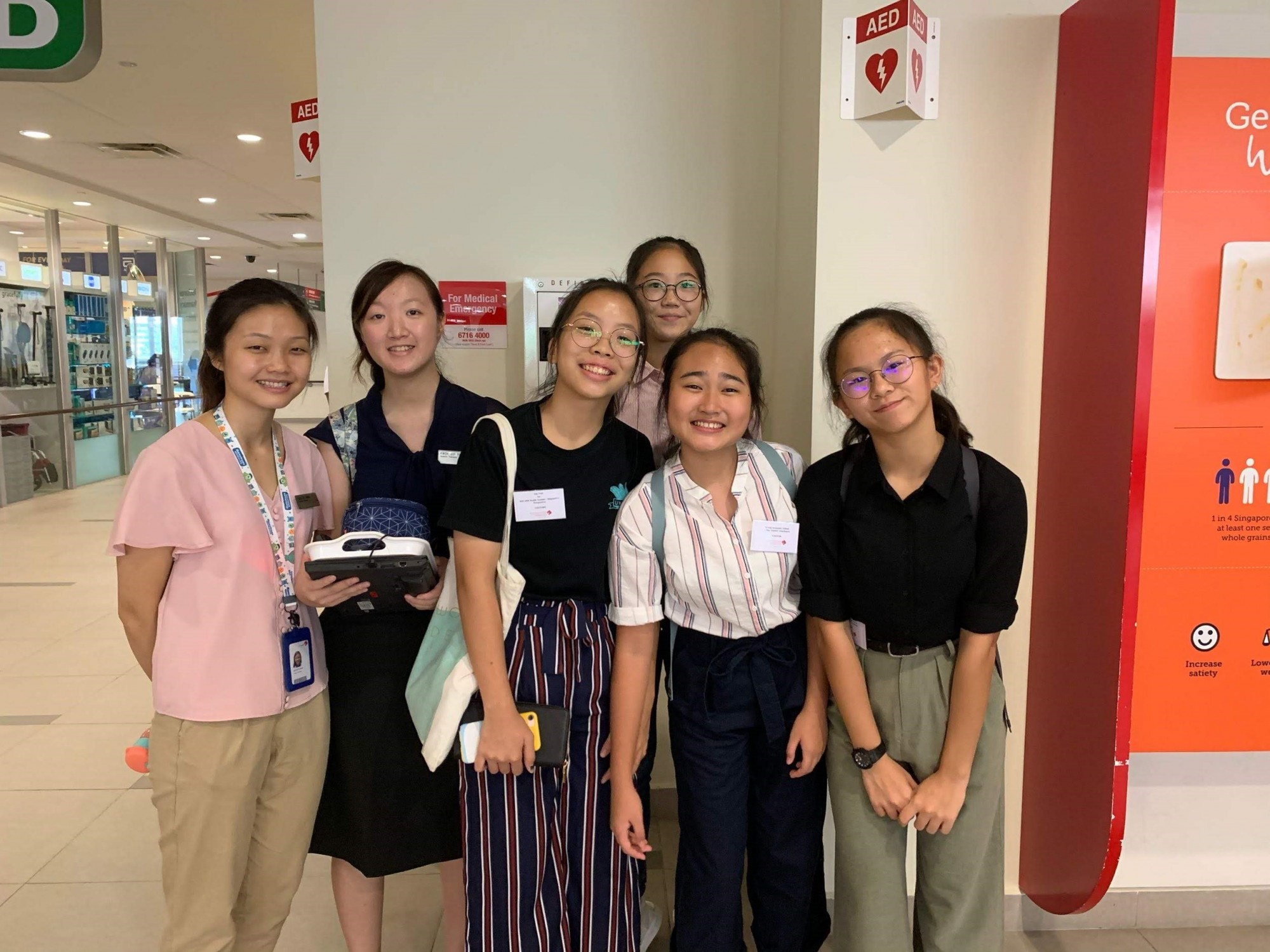 Students shadowed health professionals from Ng Teng Fong Hospital during a 2 work shadowing experience.
Students shadowed health professionals from Ng Teng Fong Hospital during a 2 work shadowing experience.
* Values-In-Action
The VIA Programme in Kranji is a 4/5 year programme based on the developmental needs of the students while aiming to positively benefit the community around the school. To raise students’ awareness of the broader issues which Singapore faces, the school focuses its VIA efforts on two broad themes: elderly and environmental sustainability. Based on these themes, students participate in a range of activities to raise awareness and take action to make a positive difference to the school and the larger community.
The Coronavirus Disease 2019 (COVID-19) pandemic in Singapore has presented opportunities for our students to to band together as a community and do our part to fight the virus as one people. We make intentional efforts to ensure that our students continue to understand that as an individual, they can still serve the community during this pandemic through practicing active citizenry. Our students led and contributed in different school and community initiatives such as:
- COVID-19 Frontliners Project
- Kranji Cares – Love (Un)covered
- Kranji Cares – Lunar New Year Celebrations
- Composting – Life after Food
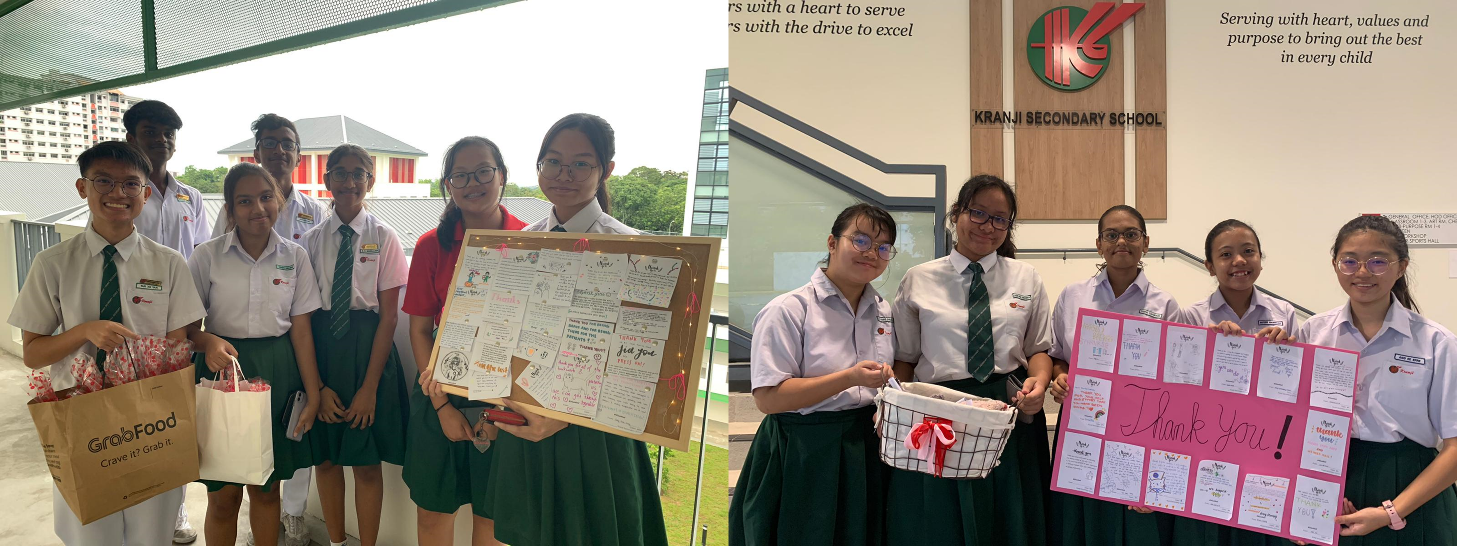 COVID-19 Frontliners Project. The Student Council organised students to write notes of encouragement and appreciation to our medical staff and SCDF paramedics when the COVID-19 pandemic unfolded in Singapore.
COVID-19 Frontliners Project. The Student Council organised students to write notes of encouragement and appreciation to our medical staff and SCDF paramedics when the COVID-19 pandemic unfolded in Singapore.
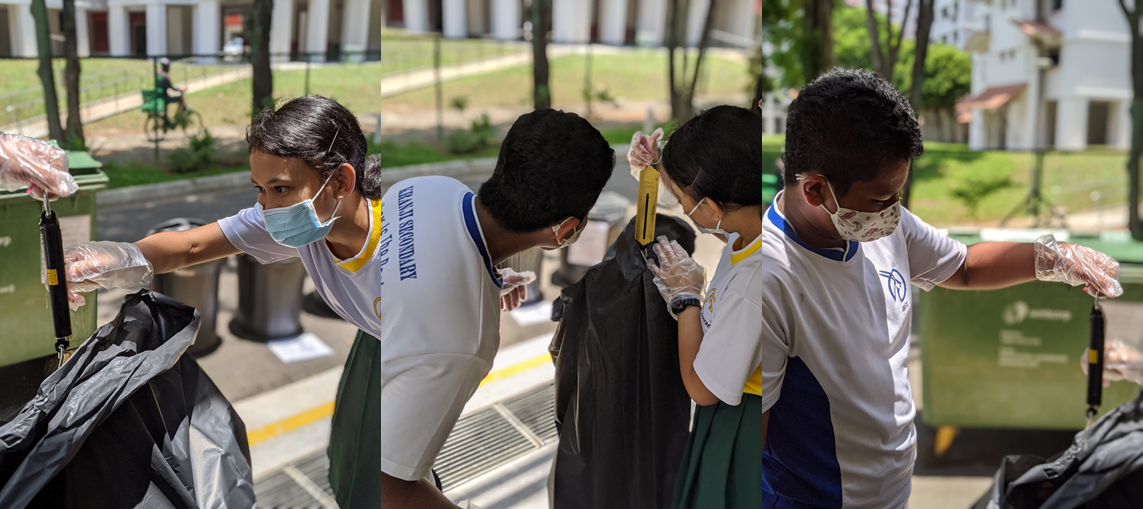 Students investigate the amount of food waste generated by school canteen vendors as part of a food composting VIA project.
Students investigate the amount of food waste generated by school canteen vendors as part of a food composting VIA project.
Through these VIA initiatives, students learn and exhibit leadership, organisational and communication skills, which are also transferable to other areas in the holistic education.
* Peer Support and Relationships
A caring school culture is one in which all members of the school community feel safe and cared for, have a sense of belonging and feel connected to the school. Such a culture is built on a foundation of quality relationships and supportive school environment. Students experience a caring school culture primarily through positive teacher-student relationship (TSR) and positive student-student relationship (SSR).

